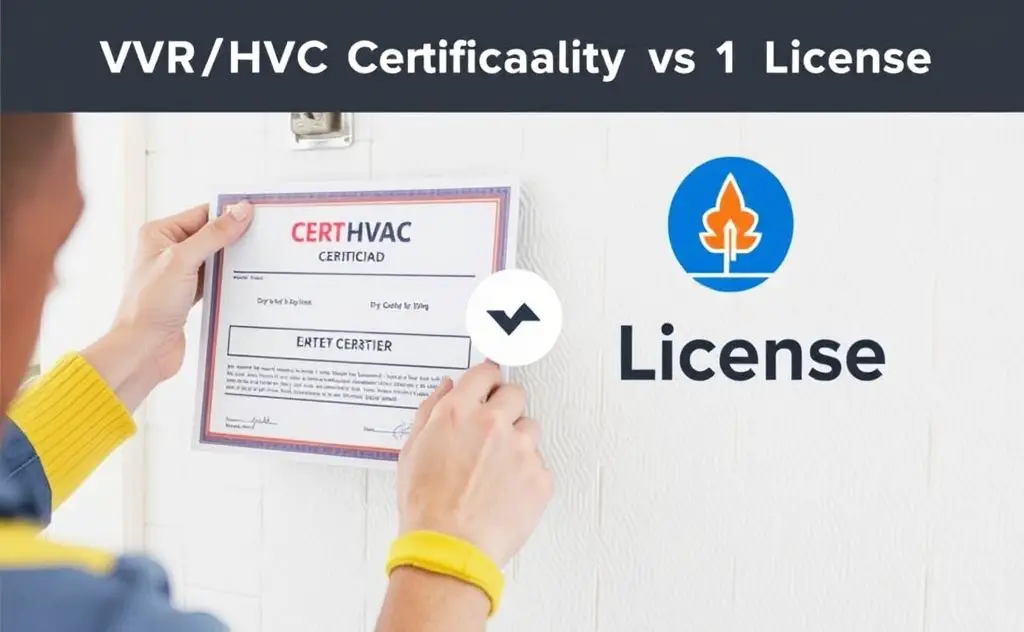HVAC certification demonstrates proficiency in specific skills, while a license is a legal requirement to operate as an HVAC technician in a given state.
Understanding the difference between HVAC certification and licensing is crucial for homeowners and aspiring technicians. While both credentials demonstrate expertise, they serve distinct purposes in the heating, ventilation, and air conditioning industry.

What Is HVAC Certification?
HVAC certification validates a technician’s skills and knowledge in specific areas of HVAC work. These programs typically focus on:
- Temperature control principles
- Equipment design and construction
- System installation techniques
- Repair and maintenance procedures
- Energy efficiency standards
Popular certification programs include EPA 608 certification for refrigerant handling and NATE (North American Technician Excellence) certification. Many gas heater specialists obtain additional certifications for specific equipment types.
Types of HVAC Certifications
1. EPA Section 608 Certification
Required by law for anyone handling refrigerants. Has four types (I-IV) based on equipment.
2. NATE Certification
The gold standard for HVAC technicians, testing real-world knowledge.
3. HVAC Excellence Certification
Covers both entry-level and master technician skills.

What Is an HVAC License?
An HVAC license is a legal requirement to perform HVAC work in most states. Unlike certification, licensing is regulated by government entities and typically requires:
- Completion of an approved training program
- Documented work experience (usually 2-4 years)
- Passing a state licensing exam
- Meeting insurance and bonding requirements
For example, California requires a C-20 license for HVAC contractors working on projects over $500. Many states have different license levels for technicians versus contractors.
State Licensing Requirements
| State | License Required | Experience Needed |
|---|---|---|
| California | C-20 License | 4 years |
| Texas | ACR License | 4 years |
| Florida | HVAC Contractor License | 4 years |
Key Differences Between Certification and License
While both credentials are important, they serve different purposes:
- Certification demonstrates competency (voluntary in most cases)
- Licensing provides legal permission to work (mandatory)
- Certifications are often specialized (like for water heater thermostat controls)
- Licenses cover broad legal authorization to perform HVAC work
According to EPA guidelines, certification is required for refrigerant handling regardless of state licensing requirements.
Why Both Matter for Homeowners
When hiring HVAC professionals, look for both certification and licensing because:
- Licensed contractors carry required insurance and bonds
- Certified technicians have proven their technical knowledge
- Proper credentials reduce risk of improper installations
- You gain legal recourse if problems occur
For complex systems like central air conditioning or commercial refrigeration, specialized certifications become even more important.
Maintaining Credentials
Both certifications and licenses require ongoing education:
- Most certifications need renewal every 2-5 years
- Licenses typically require continuing education units (CEUs)
- Technicians must stay current with code changes
- New equipment technologies may require additional training
The best HVAC professionals maintain all required credentials while pursuing additional certifications in specialized areas like geothermal systems or smart home integration.
